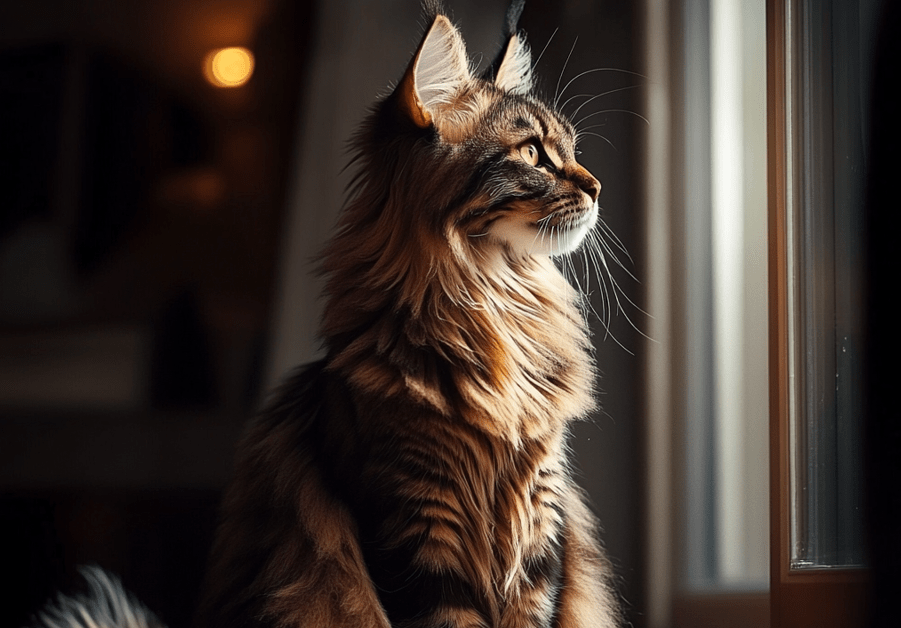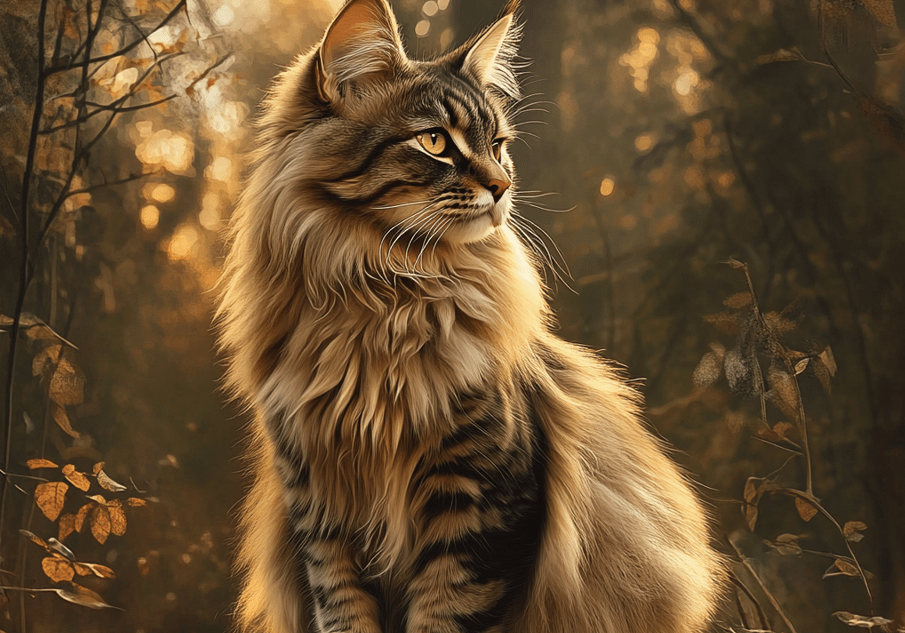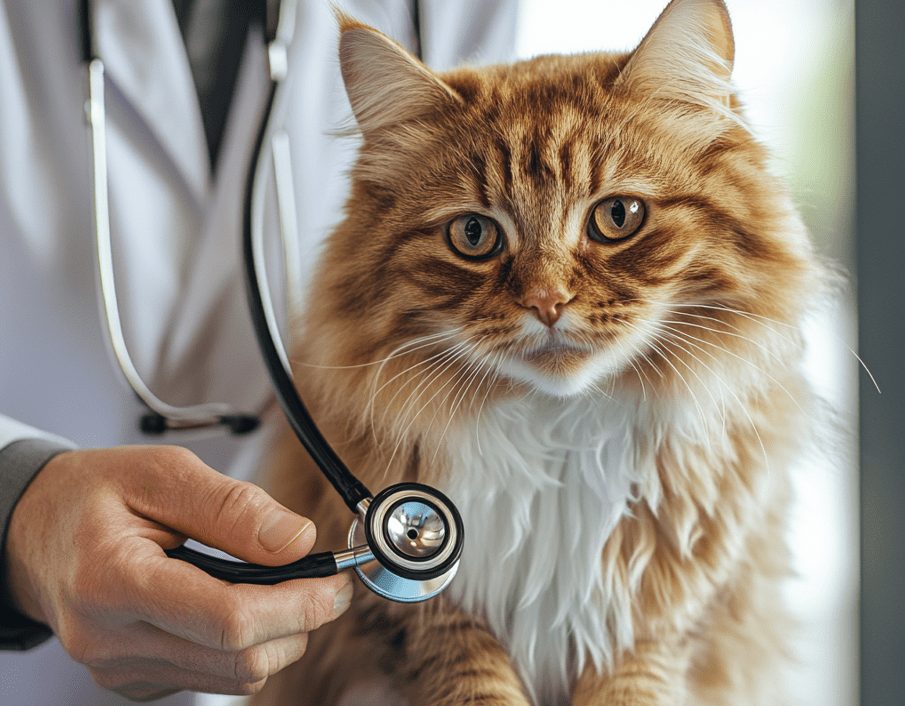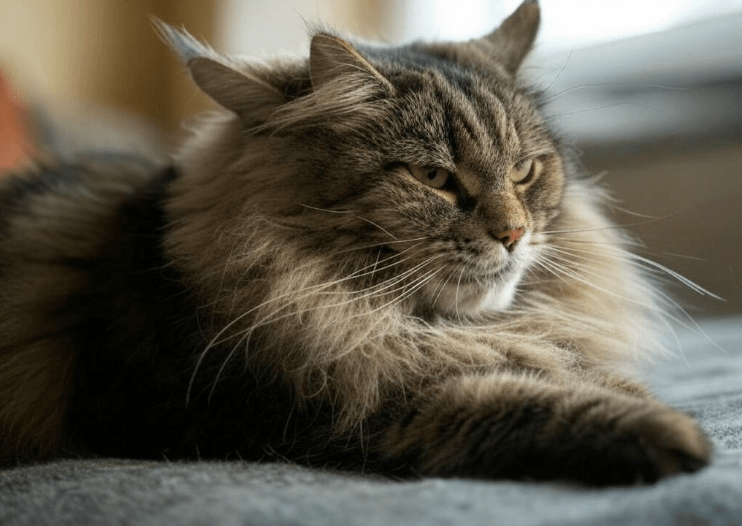
Maine Coon winter care is essential for ensuring these majestic, long-haired cats thrive during the colder months. Known for their thick, water-repellent coats and friendly personalities, Maine Coons are well-suited to chilly environments, but they still require special attention to stay warm, healthy, and safe. This comprehensive guide covers everything you need to know about Maine Coon winter care, from maintaining their coat and regulating body temperature to protecting them from seasonal hazards. By following these expert tips, you can keep your gentle giant comfortable and content all winter long.
Why Maine Coon Winter Care Matters
Maine Coons, often called “gentle giants,” originate from the rugged climates of New England, where their dense, tufted coats evolved to withstand harsh winters. However, domesticated Maine Coons face unique challenges in modern homes, especially during cold weather. Proper Maine Coon winter care addresses concerns like dry skin, joint stiffness, hypothermia, and exposure to toxic substances like antifreeze. By proactively preparing for winter, you can prevent health issues, reduce stress, and ensure your Maine Coon remains active and happy.
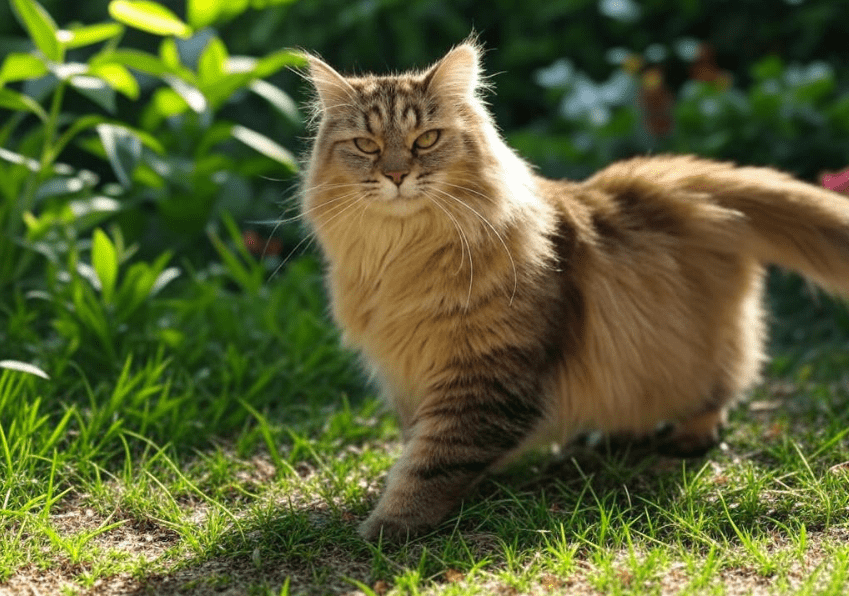
Unique Traits of Maine Coons in Winter
Maine Coons have several characteristics that influence their winter care needs:
Thick, Water-Repellent Coat: Their double-layered fur provides insulation but requires regular grooming to prevent matting.
Large Size: Their size means they need ample space to stay active indoors and larger beds for comfort.
Playful Nature: Maine Coons remain active even in winter, requiring mental and physical stimulation.
Sensitivity to Cold: Despite their hardy appearance, Maine Coons can suffer from cold-related issues if not properly cared for.
Understanding these traits helps tailor your approach to Maine Coon winter care effectively.
Key Aspects of Maine Coon Winter Care
To keep your Maine Coon warm and safe during winter, focus on these critical areas: coat and skin care, temperature regulation, nutrition, indoor safety, outdoor precautions, and health monitoring. Below, we explore each in detail.
1. Coat and Skin Care
A Maine Coon’s luxurious coat is their first line of defense against cold, but it requires extra attention in winter to stay healthy.
Grooming Tips for Winter
Brush Regularly: Brush your Maine Coon 2-3 times per week using a wide-tooth comb or slicker brush to prevent matting and distribute natural oils. This keeps their coat insulating and shiny.
Check for Matting: Pay special attention to areas like the belly, armpits, and tail, where fur can tangle due to increased indoor humidity or static.
Avoid Over-Bathing: Bathing can strip natural oils, leading to dry skin. If necessary, use a cat-safe, moisturizing shampoo and ensure your cat is completely dry to prevent chills.
Paw Pad Care: Inspect paw pads for cracks or dryness caused by cold surfaces or indoor heating. Apply pet-safe paw balm to keep them soft and protected.
Managing Dry Skin
Winter’s low humidity and indoor heating can cause flaky skin or dandruff. To combat this:
1.Use a pet-safe humidifier to maintain indoor humidity levels between 30-50%.
2.Add omega-3 supplements (like fish oil) to their diet after consulting your vet to promote skin and coat health.
3.Ensure constant access to fresh water to prevent dehydration, which exacerbates dry skin.
2. Keeping Your Maine Coon Warm
While Maine Coons are built for cold weather, they still need help staying warm, especially in poorly insulated homes or during extreme cold snaps.
Indoor Temperature Regulation
Maintain a Cozy Environment: Keep your home between 68-75°F (20-24°C). Use space heaters safely (away from cats) or heated throws for extra warmth.
Provide Warm Bedding: Offer plush, insulated cat beds or heated pet beds designed for safety. Place beds in draft-free areas, elevated off cold floors.
Create Cozy Spots: Set up window perches with blankets or cat caves where your Maine Coon can nap comfortably.
Heated Accessories
Self-Warming Beds: These reflect your cat’s body heat, providing warmth without electricity.
Heated Pads: Use low-voltage, chew-resistant heated pads certified for pet use. Always supervise to prevent overheating.
Sweaters (Optional): For short outings or hairless patches (e.g., post-surgery), consider cat-safe sweaters, but ensure they don’t restrict movement.
3. Nutrition for Winter Health
Winter can affect your Maine Coon’s metabolism, energy levels, and hydration. Adjust their diet to support their needs.
Dietary Adjustments
Increase Calories (If Needed): Outdoor or highly active Maine Coons may need slightly more calories to maintain body heat. Consult your vet to adjust portion sizes without causing weight gain.
High-Quality Protein: Feed a diet rich in animal-based proteins to support muscle maintenance and energy. Look for foods with named meat sources (e.g., “chicken” vs. “meat by-products”).
Omega Fatty Acids: Foods or supplements with omega-3 and omega-6 fatty acids promote coat health and reduce inflammation, which is crucial for older Maine Coons with joint issues.
Hydration
Maine Coons may drink less in winter due to lower thirst drive. To encourage hydration:
1.Use a pet water fountain to entice drinking with running water.
2.Mix wet food into their diet to increase moisture intake.
3.Place multiple water bowls around the house in easily accessible spots.
4. Indoor Safety and Enrichment
Winter often means more time indoors, so creating a safe and stimulating environment is vital for your Maine Coon’s physical and mental health.
Indoor Safety Tips
Avoid Toxic Substances: Keep antifreeze, de-icing salts, and holiday plants (e.g., poinsettias, lilies) out of reach, as these are highly toxic to cats.
Check Heating Devices: Ensure fireplaces, space heaters, and radiators are cat-proofed to prevent burns or tipping.
Secure Holiday Decor: Tinsel, ornaments, and candles can pose choking or fire hazards. Opt for cat-safe decorations.
Enrichment Ideas
Interactive Toys: Use feather wands, laser pointers, or puzzle feeders to keep your Maine Coon engaged.
Scratching Posts: Provide sturdy, tall posts to satisfy their scratching instincts, especially since indoor time increases.
Window Perches: Install perches for bird-watching, which provides mental stimulation.
Rotate Toys: Introduce new toys or rotate existing ones weekly to prevent boredom.
5. Outdoor Precautions
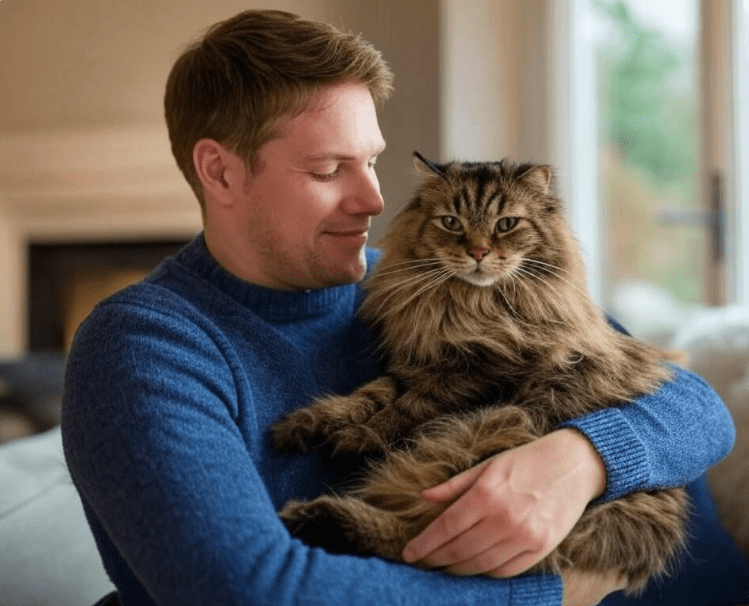
While Maine Coons may enjoy outdoor adventures, winter poses risks like frostbite, hypothermia, and slippery surfaces. If your Maine Coon goes outside:
Safe Outdoor Access
Supervised Outings: Allow short, supervised outdoor time during milder weather. Use a cat harness for control.
Catios: Build or buy a catio (enclosed outdoor space) to let your Maine Coon enjoy fresh air safely.
Check Paws: After outdoor time, clean paws to remove salt, ice, or chemicals. Inspect for cuts or frostbite (redness, swelling, or brittleness).
Cold Weather Limits
Temperature Threshold: Avoid outdoor time if temperatures drop below 45°F (7°C), as Maine Coons can still get cold despite their coats.
Time Limits: Limit outings to 10-15 minutes in cold weather to prevent hypothermia.
Emergency Signs: Watch for shivering, lethargy, or disorientation, which indicate cold stress. Warm your cat gradually and contact a vet if symptoms persist.
6. Health Monitoring in Winter
Winter can exacerbate or reveal health issues in Maine Coons, particularly in seniors or those with pre-existing conditions.
Common Winter Health Concerns
Joint Stiffness: Maine Coons are prone to hip dysplasia and arthritis, which worsen in cold weather. Provide soft bedding and consider vet-approved joint supplements like glucosamine.
Respiratory Issues: Dry air can irritate airways. Watch for coughing or wheezing, and use a humidifier to ease symptoms.
Weight Gain: Reduced activity can lead to obesity, straining joints and heart health. Monitor weight and adjust food intake accordingly.
Veterinary Care
Pre-Winter Checkup: Schedule a vet visit before winter to assess coat, joints, and overall health. Update vaccinations, as indoor cats can still contract diseases.
Flea and Parasite Control: Continue flea prevention, as parasites can survive indoors year-round.
Monitor Behavior: Changes like lethargy, reduced appetite, or excessive grooming may signal health issues. Contact your vet promptly.
7. Special Considerations for Senior Maine Coons
Older Maine Coons (8+ years) have additional winter care needs due to reduced mobility, thinner coats, and weaker immune systems.
Extra Warmth: Provide heated beds and blankets, as seniors lose body heat more easily.
Easier Access: Place food, water, and litter boxes on one level to avoid stairs, which can be tough on arthritic joints.
Gentle Exercise: Encourage light play to maintain mobility without overexertion.
Frequent Monitoring: Check seniors daily for signs of discomfort, weight loss, or changes in litter box habits.
Common Mistakes to Avoid in Maine Coon Winter Care
To ensure your Maine Coon thrives, steer clear of these pitfalls:
Neglecting Grooming: Skipping brushing can lead to matted fur, reducing insulation.
Overfeeding: Extra calories without activity cause unhealthy weight gain.
Ignoring Outdoor Risks: Allowing unsupervised outdoor time can expose your cat to cold or toxins.
Using Unsafe Heaters: Non-pet-safe heating devices pose burn or fire risks.
Overlooking Health Changes: Assuming lethargy or reduced appetite is “just winter” can miss serious issues.
Long-Term Winter Care Strategies
For ongoing success in Maine Coon winter care:
Invest in Quality Gear: Durable cat trees, heated beds, and grooming tools last multiple seasons.
Stay Consistent: Maintain grooming, feeding, and play routines year-round to ease seasonal transitions.
Update Knowledge: Stay informed about new pet care products or veterinary recommendations.
Build a Bond: Use winter’s indoor time to strengthen your relationship through play and affection.
Conclusion

Maine Coon winter care is about more than just keeping your cat warm—it’s about ensuring their health, safety, and happiness in the face of cold weather challenges. By prioritizing coat care, temperature regulation, nutrition, indoor enrichment, outdoor safety, and health monitoring, you can help your Maine Coon thrive all winter long. With their playful spirits and loyal nature, Maine Coons deserve a cozy, secure environment to enjoy the season. Implement these strategies, stay vigilant for health changes, and consult your vet for personalized advice. Your gentle giant will reward you with purrs and companionship throughout the winter months.

